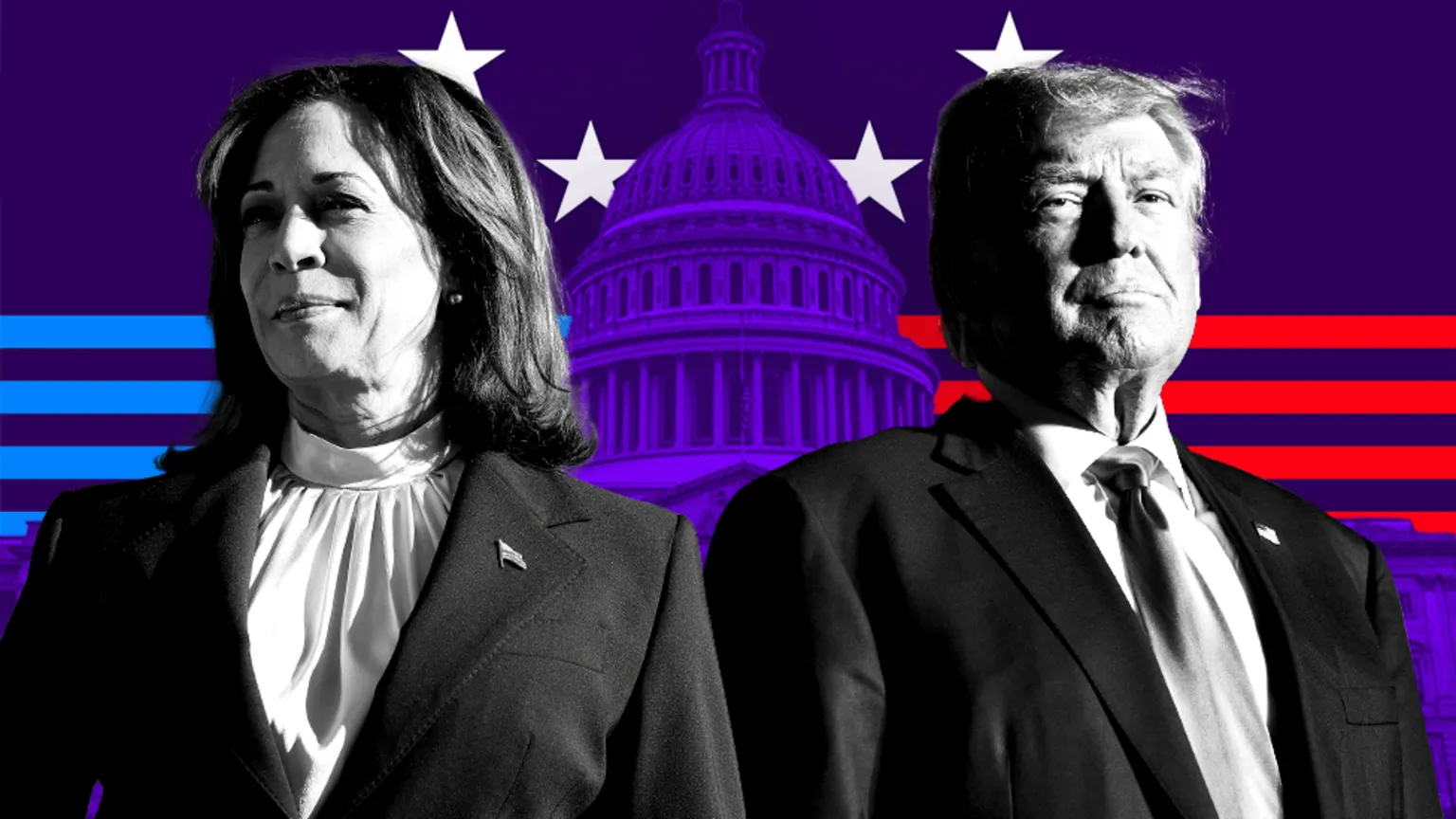The race for 47th president of the United States shows Trump as the clear leader. Photo courtesy of BBC.
LILY O’CONNOR | NEWS CO-EDITOR | lkoconnor@butler.edu
The following reporting has been verified at the time of Issue 9 publication as of 2 a.m. EST on Nov. 6. The Collegian will continue to report on ongoing election updates.
UPDATE: As of 2:30 a.m. EST, Trump claimed victory in Pennsylvania, securing another crucial battleground state. As of 2:47 a.m., AP called Minnesota for Harris.
Former President Donald Trump is in the lead of the Presidential Election as of the end of Election Day. Swing states of Georgia and North Carolina have been declared won by Trump by the close of the polls.
While Trump is currently in the lead, votes are still being counted. Wisconsin, Pennsylvania and Michigan, specifically, will be a deciding factor in this election.
Harris focused her campaign on plans to build an “opportunity economy” for the middle class. Her official plan — “A New Way Forward for the Middle Class” — includes promises for policies such as cutting taxes for middle-class families, lowering energy costs, making all levels of education quality and cost-effective, growing small businesses and making rent more affordable.
Trump focused his campaign on US foreign policy. His official plan — “Agenda 47” — includes promises for policies such as making the United States the dominant energy producer, sealing the border and carrying out a large deportation initiative, strengthening the military, deporting pro-Hamas radicals to make college campuses safe and preventing World War III.
Young voters are an important demographic, especially in more recent elections. In 2016, 44% of 18-to-29 year-olds voted, and that number jumped to 53% in the 2020 election. This year, 42 million 18-to-27-year-olds are eligible to vote. This demographic is the first generation to grow up online in today’s polarized political climate.
Victoria Yaklin, a junior international business and finance double major and vice president of Butler University College Republicans (BUCR), believes that social media has made it easier for younger people to be aware of policies and candidates.
“With the rise of social media, I think people are becoming a lot more informed,” Yaklin said. “However, it’s important to be able to decipher information, be able to critically think about it, understand what’s truthful and what’s not, and be able to draw your own conclusions of the material and the information that you’re viewing.”
Dylan Noble, a junior political science major and president of Butler University College Democrats (BUCD), agrees that this election came with heightened media presence from both candidates.
Noble cited Harris’s appearance on an episode of podcaster Alex Cooper’s podcast — “Call Her Daddy” — and Trump’s appearance on podcaster Joe Rogan’s podcast — “The Joe Rogan Experience.” Both candidates have appeared on a multitude of podcasts and late-night shows.
“I think in terms of the ways that campaigns have reached college students, we have seen a lot of podcasts and pop culture references,” Noble said. “Whether [podcast appearances] does actually win over votes, I don’t know. [Social media] is definitely very effective, like when Taylor Swift endorsed Kamala Harris, obviously, that’s a huge base of fans that all of a sudden are paying attention to the election.”
Noble believes that social media is a prominent source of information for the younger generations. He said that many young voters have formed opinions based on these media appearances.
At Butler, many students from both political parties have expressed concern about economic policy. Although they may disagree on what specifically needs to change, many students want to see reform.
Hank Fleetwood, a sophomore political science major, is a member of the Peace & Politics Student Association and BUCD. He and Noble believe that student loans and federal scholarships are some of the biggest issues affecting college students. They hope for continued student loan forgiveness with the Harris administration.
“Certainly with the Biden administration, we’ve seen an attempt to combat student loan debt,” Fleetwood said. “So if Harris were to win, I would imagine that the odds of that being a continued focus of the administration would be greater than if Trump would win.”
Yaklin is more concerned with the inflation of gas and grocery prices. She is skeptical that the Harris administration would do much to ease the issue and would like to see change that is promised by the Trump administration.
“I think [presidential elections] are really impactful, especially from the economic standpoint,” Yaklin said. “A lot of us are paying our tuition and stuff, and when it comes to [prices of] food, gas, groceries, that sort of thing, I think that’s been a major problem in the last four years.”
While political tension and polarization are high in this election season, most students agree that respect and understanding are vital to the peace and unity of this country. However, one of Fleetwood’s biggest concerns for the outcome of this election is the effects on the political climate.
“I think the optimistic view would be less division,” Fleetwood said. “I think the pessimistic view would be more division. No matter who wins, there will be a loser, and they won’t be happy with the outcome.”
Yaklin feels that it is important to be able to agree to disagree on political topics. She believes that people can be friends and have relationships with people who have opposing views as long as both people are respectful.
“I think a big concern is making sure that we still remember we’re friends, we’re peers, we live on the campus together,” Yaklin said. “We have to respect everyone’s opinions. Everyone has the right to vote the way they want to, and that’s something that should be celebrated.”



